0 Comments
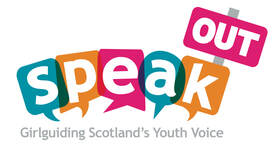 Speak Out champions are a group of girls and young women who make up Girlguiding Scotland’s youth panel. They act as spokespeople for the organisation and share their views on issues that matter to them and other girls across the country. They’ve always been passionate about ending period poverty for good and have supported Monica Lennon MSP over the years in her quest to make this a reality. Check out this blog by Speak Out champion Eloise and find out more about what part they played! Making sure there’s access to free period products is one of the most important moves the Scottish government has made. By getting rid of the idea that period products are something of a luxury so many more individuals have been able to get access to the resources they need like pads, tampons etc. It especially helps those who might get their period for the first time without warning somewhere like school. This helps improve overall school attendance as those who may have experienced embarrassment or found themselves unable to attend school due to lack of access of period products, will now no longer have to face this issue. The impact the Free Period Products (Scotland) Act has had on those experiencing period poverty is tremendous. Our Girlguiding Scotland Girls in Scotland Survey found that 25% of girls had experienced period poverty or knew someone who had, with 13% of girls as young as 13-25 having experienced period poverty themselves. By making free products available we have taken one further step towards equity in both the financial world and healthcare world, as well as opening the door of opportunity to those who may have once felt held back by their period. As a member of Girlguiding Scotland and a Speak Out Champion I’m aware of how much hard work from our passionate members went into supporting and fighting for this bill to pass. Between speaking on behalf of our members and girls at the Scottish Parliament, conducting surveys, creating a campaign to raise awareness within units and even helping girls take part in supporting women’s shelters to provide products, we as an organisation fully support the Act and can already feel the positive affect that it is having. By Eloise, Girlguiding Scotland Speak Out Champion  Speak Out champions are a group of girls and young women who make up Girlguiding Scotland’s youth panel. They act as spokespeople for the organisation and share their views on issues that matter to them and other girls across the country. They’ve always been passionate about ending period poverty for good and have supported Monica Lennon MSP over the years in her quest to make this a reality. Check out this blog by Speak Out champion Lauren and find out more about what part they played! Period Poverty affects everyone in one way or another - whether it affects individuals based on the costs of products, or not having the basic facilities to manage their periods. Plan International UK found that 14% of people have had to borrow products from others because they couldn’t afford to buy period products. In addition to this, 12% have made use of alternatives because they couldn't afford to buy regular products, and almost 20% have had to switch to a less suitable period product because of the costs. Since this survey, over the past 5 years there has been a lot of positive change surrounding the issue of period poverty. In 2017 a pilot programme was launched in Aberdeen to provide free products to low income households. Shortly after, Girlguiding Scotland launched their Period Poverty campaign in September, stating that no-one should be forced to forego period products because of cost or lack of facilities, calling to improve access to products for all. In 2019, Monica Lennon MSP proposed the Period Products (Free Provision) (Scotland) Bill and alongside Girlguiding’s Speak Out champions, campaigned at the Scottish Parliament until November 2020 when it was finally passed. It became an Act officially on 12 January 2021, meaning all educational facilities must supply a range of period products in their bathrooms, as well as a Scotland-wide scheme to supply free products to anyone who needs them. Period poverty is an ongoing issue because most people with periods have them recurring for around 40 years, having to buy products for half of their lives. Our Girls in Scotland survey shows that two-thirds of young women in Scotland said that they’re aware of more environmentally friendly products - many of which are actually healthier alternatives. Our survey shows that 58% of young women think reusable products are too expensive. More needs to be done to have affordable access to these long-lasting reusable products, as not only do these products help the environment with less plastic waste, but they limit the costs of buying products constantly. There is still a long way to go to illuminating period poverty altogether, but it feels like we’re on the right track! By Lauren, Girlguiding Scotland Speak Out Champion 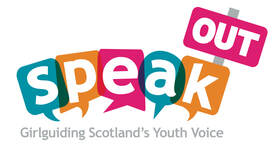 Speak Out champions are a group of girls and young women who make up Girlguiding Scotland’s youth panel. They act as spokespeople for the organisation and share their views on issues that matter to them and other girls across the country. They’ve always been passionate about ending period poverty for good and have supported Monica Lennon MSP over the years in her quest to make this a reality. Check out this blog by Speak Out champion Abby and find out more about what part they played! In recent years Scotland introduced the Free Period Products Bill to help those who are unable to afford them or access them. This allows period dignity for those who may not have had it before and who have experience period poverty, and it makes a huge difference within their lives. They won’t need to constantly be worried about trying to afford essential products each month, as it’s not up to them whether they have their period or not. Not only that, it also breaks the stigma around periods. This makes it easier for many girls, women and people who might have felt self-conscious if they weren’t able to afford the essential products they need to manage their periods. Here at Girlguiding Scotland we believe that period products should be free and easily accessible to those who need it. Our Girls in Scotland research into free period products found that 89% believed that having access to free period products in school/college/university helps to reduce the stigma around periods within the community. Girlguiding Scotland also created a campaign to end period poverty and worked with other organisations to reach their goal. 2020 was a milestone for the campaign as the Free Period Products Bill became law. This places a legal duty on local authorities to guarantee that there are free period products available to those who need them. More locally in my area, in 2018 Stirling University made free period products available across campus due to the £5.2 million fund which they received from the government, alongside other Universities and Colleges. The scheme which was implemented aimed to help banish period poverty experienced by any of the 395,000 of Scotland’s school, college and university students. Also, as of 2019, Stirling Council introduced free period products within public facilities as part of the authority’s ongoing commitment to tackle poverty. By taking all these measures and through the life changing Period Products (Free Provision) (Scotland) Act, many people will not be plunged into poverty due to the high costs of period products. Hopefully talk of periods among people might even become more normal within society meaning there will be more awareness on how to access free period products. By Abby, Girlguiding Scotland Speak Out Champion 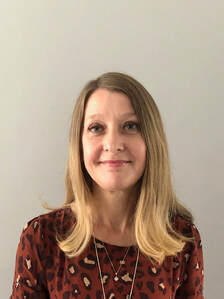 At South Lanarkshire College we are committed to ensuring there are no barriers to education. As such, we have continued to raise awareness of period poverty since 2017 and provide free sanitary products to all staff and students. As part of this commitment sanitary products continue to be available from free dispensing machines in toilets through the campus for all staff and students, including in gender neutral and fully accessible toilets. In addition to this, the College also creates holiday packs which are available prior to term time holidays such as Easter, Summer break and Christmas, as well as shorter holidays throughout the year. These packs consist of a mix of products and can be collected from multiple points throughout the College, without having to request them from a member of staff. We believe it is essential that staff and students can collect these products as and when suits them without having to speak with someone to arrange collection. To highlight this work at the time, a dedicated poster campaign was created and shared providing details on where products could be collected and to reiterate that these items were available to all staff and students. Due to restrictions as a result of the pandemic we had to ensure that these products were still available while staff and students worked remotely. To facilitate this, we partnered with Hey Girls to provide delivery of sanitary products direct to home addresses. The order process was straightforward and accessible with Hey Girls developing a short survey that respondents could complete, providing details of the type of products they would prefer. These items were then delivered direct to the respondent free of charge. As we started to provide blended learning, the College continued to provide this remote service in partnership with Hey Girls, in addition to providing on campus products. We fully intend to continue providing both services for the foreseeable future. The feedback received to date has been overwhelmingly positive, particularly during lockdown when many staff and students were unable to access these items free of charge. Promotion of this service has been available through multiple channels including staff and student newsletters, social media, poster campaigns, student handbook and surveys. In reference to moving forward we would be keen to create a new survey to review as to whether there are any further measures we can put in place to help assist staff and students. The College is also keen to promote sustainable alternatives as part of the availability of free sanitary products. This includes menstrual cups, reusable period pants and reusable pads. Prior to lockdown, there were several occasions where information stalls were set up in the College’s main atrium to raise awareness of these products and provide access to these free products. As restrictions ease, we are keen to return to this way of promoting the service. We are also looking to build upon our partnerships with Hey Girls and within the local community, especially in relation to the Access to Free Sanitary Provision in South Lanarkshire. Previously we have shared the social media messaging and survey compiled by the local authority, which is aimed to help shape future sanitary provision in South Lanarkshire College. Looking ahead we are liaising with South Lanarkshire Council about a member of the Community Engagement Team visiting the campus to consult directly with students on Access to Free Sanitary Provision throughout South Lanarkshire. Particularly in the current economic climate with many students and staff facing increasing living costs, we believe it is now more important than ever that everyone can access these essential products. South Lanarkshire College looks forward to continuing with these important partnerships and services to ensure free and equitable access to sanitary products in an accessible and dignified way. Rose Harkness, Head of Student Services 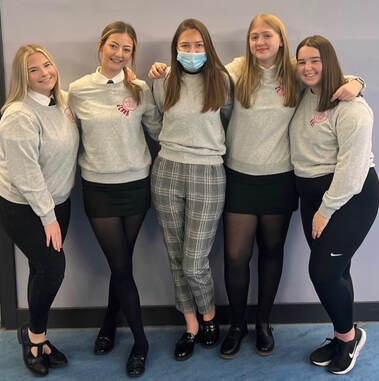 Code Red was launched in 2020 within Denny High School when it was apparent that periods were impacting attendance; we established the group to support period dignity and challenge the stigma around periods. In the beginning, we formed Code Red with a mix of junior and senior pupils – Jenna and Katie (both now S5 were original members) - and Physics teacher Miss Dickson; now we have new members: Ellie, Abi, Emma, Olivia and Bethany, and we make sure everyone has access to period products by restocking toilets for both pupils and staff throughout the year. We use tannoy announcements to ensure pupils and staff are aware of Code Red and their goals and we’ve found that regular announcements has reduced vandalism and continues to challenge the stigma as we highlight period poverty and the purpose of the products. During lockdown we ensured both pupils and families had access to products by developing a delivery service through ‘MS Forms’ before the local authority service was available and it was very exciting to win CVS Falkirk’s ‘Innovative Volunteer of the Year’ Award 2021. Katie: “We have had so many opportunities through Code Red. My highlight was when I was 1 of 20 girls selected to develop an eco-friendly period product with Dame in Oxford. My willingness to try alternative products has driven Code Red to educate our school community about sustainable options through Code Red Go Eco.” We were delighted to meet Monica Lennon, MSP to celebrate one year of The Period Products (Free Provision) (Scotland) at Stage 3 in November 2021 as she was our inspiration behind Code Red. Abi (S4): “I joined Code Red this year because I could see the positive impact it was having on pupils and staff… I’ve enjoyed creating TikToks to support period dignity as well as using the vinyl printer to design Code Red jumpers. Any key event in the Code Red calendar is followed by cupcakes and party canons to highlight the work we do and ensure achievements are celebrated.” Communicating through Instagram and Twitter (@_DHSCodeRed) has helped us reach more pupils and share updates with the wider community as well as set an example for secondary schools in Scotland – we have recently been invited by Education Scotland to deliver a professional learning event for teachers across Scotland which will be an exciting opportunity to share our journey and support other schools in establishing a period dignity group. Miss Dickson: “As a teacher, it has been a privilege to work towards normalising periods with a group of young people who share the same determination to reduce inequalities and are committed to social justice. There has been a real shift in attitudes around period dignity whereby our school community recognise that period products are a necessity within all toilets. We are delighted to have the opportunity to work in partnership with Education Scotland and take Code Red to the next level by supporting period dignity within other secondary schools in Scotland.” The success of Code Red is evidenced by the frequency we replenish stock, highlighting that we have addressed a need in school and we will continue to support pupils and families to sign up to the free period product service, welcoming a wider range of sustainable products to ensure those options are accessible for all people experiencing periods. We recorded a Q&A on periods and contraception with Dr Victoria Kinkaid, who has an interest in female health, to ensure both pupils and staff are able to make more informed choices about their body. You can listen to the recordings here: Periods: https://sway.office.com/gjHh5yeYPCu3Zqec?ref=Link&loc=play Contraception: https://sway.office.com/VPIM2bCcSMtmcqwd?ref=Link Also, you can check out our interview with Celia Pool, co-founder of DAME - a brand behind the world’s first reusable tampon applicator: https://sway.office.com/KvmivaEufGyXNvbH?ref=Link Twitter/Insta: @_DHSCodeRed 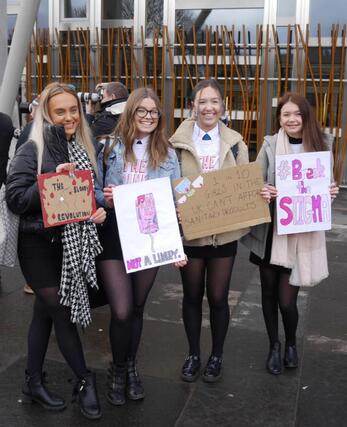 At Lady Business we are delighted to see the Period Products (Free Provision) (Scotland) Bill reach its final stage. This Bill has become such an important part of our group and each of our individual lives. As people who menstruate and activists, we recognise the importance of this Bill and being students, we see first-hand the impact that a lack of sanitary products can have. This need for access to sanitary products has motivated us in our fight. Since our creation a year ago we have introduced and maintained free and accessible sanitary products in every toilet in our school. Since the implementation of these products, we have seen a decrease in girls leaving and missing classes. Furthermore, we can guarantee that since our creation, the stigma of periods has significantly decreased. Within our school, we find more young women and girls feeling confident to talk about their periods, less feeling like they are dirty or taboo, and more males feeling educated on menstruation. The small difference we have been able to make within our school and local area confirms to us that access to sanitary products needs to be rolled out on a national level. It is undeniable that every day people who menstruate are unable to attend work and school due to their period. Research done in 2018 by Women for Independence shows that 1 in 5 women had experienced period poverty. However, we would like to commend the barriers that have already been broken down by this Bill even being proposed. Starting a conversation about period poverty, especially one that is led by MSPs is not only necessary but imperative. As a country we need to demonstrate to those who menstruate that periods are not something to be ashamed of. Nevertheless, the obvious way for the Government to show that they are supportive of this conversation, is to pass this Bill. Whatever the outcome of this final stage, Lady Business has been and will continue to be enormous supporters of this Bill. We have been honoured to be a part of this process, and whatever the outcome, our fight will not stop. On Tuesday the 24th of November 2020 the Free Period Products Bill will go into its final stage (stage three) of parliament. For women and girls across the country, this Bill could be life-changing and it couldn't have come at a better time. With the levels of period poverty rising due to the COVID-19 pandemic, women and girls in Scotland need access to free sanitary products now more than ever.
Period Poverty is when a woman or girl can't afford to buy sanitary products due to low income. For example, the cheapest box of tampons you can buy from supermarket ASDA is £0.80 for 32, for 14 sanitary towels, it is £0.54. Although that might not seem like a lot of money most women menstruate every month for 3-8 days. This means that even buying the cheapest option, by the end of the year if you were to buy one box of tampons every month it would cost £9.60 and for sanitary towels £6.48, this is based on one woman menstruating in a household each month. It is an essential item that some simply can't afford. The stigma around periods makes it hard for people to open up and admit that they are unable to afford these products, so what do they resort to? Toilet paper, newspaper and even socks are just some of the 'period products' that are available to 1 in 10 women. For them, if this Bill were to pass it would mean that every month they would be able to access free sanitary products. I became involved in this subject after thinking about the topic of period poverty during the National Lockdown. I started to question the availability of period products in Primary Schools throughout Scotland. I know that before the National Lockdown many High Schools provided pupils with free sanitary products. I thought this was a very beneficial plan to help combat period poverty during the five months that followed. After speaking to a friend who started her period in primary school, I was intrigued to find out if Primary Schools were providing the same service. I decided to get in touch with my Primary School Head Teacher to find out more about the topic. She was very interested in this subject and informed me that the Primary School was not being provided with free period products for their pupils. At all. They do have a small supply of sanitary products that they’ve purchased with their budget as part of their first aid box. If a girl starts her period or requires to use a sanitary product within the primary school she must go to the school office and ask a member of staff. Whilst I may be making an assumption I would imagine this would cause a certain degree of embarrassment or humiliation as there may be other young pupils standing around overhearing this discussion. To me, I feel that it is so important that period products are provided freely in Primary Schools for many different reasons. Younger girls are more embarrassed about having their periods, it’s a strange new change in their bodies and most won’t have the confidence to go and ask a teacher or member of staff for period products, therefore, products must be provided for them easily and freely when they need them most. Ideally, these products could be placed in a cupboard of an empty classroom so that girls can easily access them without having to ask. Pupils would learn about how to access these products when they are taught about menstruation in Health Education. By placing products in all schools you are helping to combat the growing issue of period poverty as a whole. I also think that it is important for young girls whose parents have separated, or girls who don’t have a mother figure in their life to have access to period products. It may be difficult for the girl to tell her father or carer that she is menstruating, therefore if the girl needed products she should have access to them at school or through other community centres. The topic of Period Poverty and Period Dignity is very personal to me and something I am very passionate about. I started my period when I was in high school. My parents were divorced and at that time I split my time between my mother’s house and my father’s. When I had to have the conversation with my father about needing these sanitary products, he refused to buy them for me or provide me with them. I was lucky enough to have my mother. There are girls out there who don’t have mother figures and that is why it is so vital that sanitary products are available freely in Scotland. https://www.bbc.co.uk/news/uk-scotland-scotland-politics-51629880 https://www.adweek.com/agencies/campaign-aims-to-tackle-period-poverty-by-placing-fake-sanitary-pads-in-newspapers/ https://www.nhs.uk/conditions/periods/ https://groceries.asda.com/search/tampons/products?cmpid=ahc-_-ghs-_-asdacom-_-hp-_-search-tampons&sort=price+asc https://groceries.asda.com/search/sanitary%20pads/products?sort=price+asc 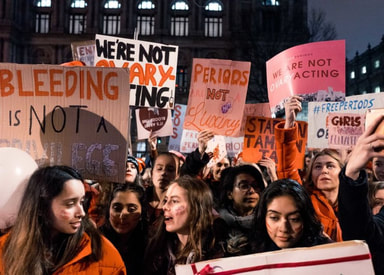 This article appeared in the print edition of the Evening Telegraph: 17/02/2020 I discussed various potential opportunities with my careers adviser before leaving high school but becoming a spokesperson for menstruation was never on my list. However, that became my lot a few years ago when an increasing number of women and girls presented at foodbanks across Scotland in need of sanitary items. Many women, due to circumstances beyond their control, were forced to supplement the use of sanitary items with socks, toilet roll and newspaper. My awakening came like a lightning bolt when, in 2010, one young lady came to Dundee Foodbank and turned down sanitary items stating she was too malnourished due to a lack of calories. From 2016, I was called upon for interviews with various media outlets to discuss what became known as “period poverty” and, in 2017, I and my colleagues submitted a detailed report to Aileen Campbell when she was the Minister for Public Health. Alongside other grassroots campaigns, this led to a pilot in Aberdeen followed by £9.2 million of Scottish Government investment to ensure sanitary provision in schools, universities, libraries and leisure facilities. In 2018, I retreated and assumed that was the job done until a fortnight ago when Aileen Campbell, now the Cabinet Secretary for Communities, opposed the bill on the free provision of period products. The architect of the bill, Scottish Labour’s Monica Lennon, has been the single most fervent champion for the universal provision of sanitary items. She and I met in Holyrood the day after the Local Government and Communities Committee voted by five to two against it, citing concerns over cost and implementation. Scottish Green MSP, Andy Wightman, highlighted that the principle of universalism is at stake and there is a need to counter the belief that you can institute rights without legislation. Monica said: “The driving principle of the bill is achieving period dignity for all.” She adds: “Legislation is essential to secure rights and protect the progress made so far. Means-testing menstruation is not practical or dignified – a universal approach is progressive.” The bill has support from the Scottish Labour Party, Scottish Green Party, Scottish Liberal Democrats and, in a live interview, the new leader of the Scottish Conservative Party, Jackson Carlaw, pledged support. SNP equivocation has infuriated members. Last week, I met the SNP Students National Equalities Officer, Stuart Smith, who has already secured significant support within his party including some elected members. He said: “We are the party of the baby box, universal education, free prescriptions and free personal care.” He adds: “There may be economic concerns but that is what stage two of the parliamentary process is for.” Nevertheless, on Tuesday 25 February, the bill will be presented and the SNP are at least four votes shy of a majority, which means if all other parties vote for it, we could see a political earthquake and irreparable damage done to the SNP claim they are the party of gender equality. Free Provision of Sanitary Products: The Bill that could tackle period poverty, and so much more2/6/2020  The ‘Proposed Sanitary Products (Free Provision) (Scotland) Bill' has been criticised at the first stage on 5 February 2020. This article discusses why the Scottish Government should consider the positive implications of the proposed Bill which could not only tackle period poverty, but also positively impact those suffering with endometriosis. “You can’t have a world class education system if students are skipping class when they have their period. They should be able to visit the toilet safe in the knowledge that sanitary products are freely available.” [i] In a column penned for The Big Issue magazine in 2017, MSP Monica Lennon passionately stressed the importance of ensuring menstruation does not hinder the education of Scottish students. Lennon’s draft proposal, lodged on 11 August 2017, motivated numerous universities, schools and colleges to undertake an obligation to ensure the provision of free sanitary products in their establishments. The draft proposal (which was introduced as a Bill in the Scottish Parliament on 23 April 2019) had the potential to position Scotland as a driving force behind tackling the issues posed to women* by often expensive period products, thanks in no small part to unfair taxes imposed by an antiquated system of taxation. The campaign led by Lennon gave women in Scotland hope that they would no longer worry over the costs of sanitary products whilst living in a nation that was likely to become an innovative player in the campaign to end period poverty. It’s one of many reasons why the recent criticism of the Bill by Holyrood MSPs at its first stage has come as a huge disappointment. The key criticisms of the Bill were published on 5 February 2020, with the primary concern of the Local Government and Communities Committee being the cost. In addition, there were concerns over who would bear this cost should the Scottish Government choose not to. The criticisms have left some women in Scotland feeling deflated due to the impact that the legislation could have had, not only on period poverty, but also on relieving the financial burden of those suffering from endometriosis. Endometriosis For those of you who aren’t aware, endometriosis “is a condition where tissue similar to the lining of the womb starts to grow in other places, such as the ovaries and fallopian tubes.” [ii] The condition is often excruciatingly painful, extremely debilitating and has been listed among the 20 most painful conditions to experience alongside heart attacks and arthritis. [iii] In addition to often unbearable pain, endometriosis can also cause abnormal amounts of bleeding during the menstrual cycle. The definition of ‘normal’ menses is less than 80 mL of blood being shed, [iv] therefore, someone suffering with this illness will likely lose more than 80mL during their menstrual cycle. The Financial, Psychological and Educational Cost of Endometriosis Financial and Psychological As endometriosis can cause uncharacteristically heavy bleeding during the menstrual cycle, sufferers sometimes have to change their sanitary products as often as every hour (if they are able to make it that long). This is compared to guidelines that suggest sanitary products only need to be changed every 4 to 6 hours. [v] In addition, an endometriosis sufferer may also experience irregular periods which may last longer than 7 days. [vi] Consequently, the number of sanitary products which are utilised by a sufferer of endometriosis will generally far outnumber the number of sanitary products which are utilised by a woman without the condition. Using the above guidelines, on a very basic comparison an endometriosis sufferer could be using 4 to 6 times the number of sanitary products that someone with a ‘normal’ period uses on any given day. The financial burden that this places on sufferers is significant. Given that the average lifetime costs of managing a menstrual cycle are somewhere between £1,000 and £1,500, [vii] the costs for a sufferer of endometriosis could be astronomical. This is where the Proposed Sanitary Products (Free Provision) (Scotland) Bill could have a huge impact on sufferers of endometriosis, and one of the many reasons why the Scottish Government should begin to seriously consider how they could practicably bear the costs in order to improve the quality of life of sufferers. The provision of free sanitary products would alleviate the financial burden of purchasing multiple sanitary products massively and allow sufferers to worry less about dedicating a large proportion of their income to sanitary products. It has already been shown that providing women free sanitary products, regardless of income or reproductive health issues, has a positive effect. During the Aberdeen pilot of the Access to Sanitary Products programme [vii] which ran between September 2017 and February 2018, 63% of those involved felt that taking part in the pilot had an impact on them. The most common response when asked specifically what kind of impact the pilot made was that those involved had “more money available to spend on other essential items” and that they were “less worried about having [their] period”. One respondent was quoted as saying free sanitary products provided in this way would be “a god send for me and 2 daughters. Between the 3 of us someone is always having a period.” It’s unknown if any of the participants in the said pilot suffered from endometriosis. However, it is clear that the provision of free sanitary products has been shown to relieve both the financial pressure of purchasing sanitary products and also relieve the anxiety associated with having a period due to period products being easily accessible. The impact this could have on women with endometriosis is significant. Several studies have reported the association between endometriosis and psychological diseases, underlining that endometriosis is related to a wide range of psychiatric symptoms especially depression, anxiety, psychosocial stress and a poor quality of life. According to recent literature, depression and anxiety are the most common disorders associated with endometriosis. [viii] If the provision of free period products could help to alleviate that anxiety in some way, whilst also simultaneously reducing Scotland’s rate of poor mental health (15% of adults in Scotland have low wellbeing or a possible psychiatric disorder) [ix], then this Bill seems highly worthy of being enshrined into law and should be considered in line with the wider impacts it is likely to have. Educational In addition to alleviating strain on both financial and mental wellbeing, the provision of free sanitary products to those suffering from endometriosis must be considered in order to ensure, if not further, the education of sufferers. The Access to Free Sanitary Products for those at school, college or university study carried out by Child Rights and Wellbeing Impact Assessment (CRWIA) [x] in 2017/18 found that around a quarter of respondents, 26% of which were currently in education, said they had struggled to access sanitary products in previous year. Around 6 in 10 respondents who reported struggling to access products said that this was because they didn’t have the product they needed. Tie this into anecdotal evidence from the aforementioned Aberdeen Pilot scheme that some girls are missing education in order to manage their menstruation, and we begin to see that lack of period products could have a huge impact on educational attainment. If we then consider that, according to the CRWIA study, the most common way respondents in education who had struggled to access products coped was having to ask someone else for a tampon/towel (71%) or to use an alternative e.g. toilet paper (70%), we see how unfeasible this is for someone suffering with endometriosis. It would be both impractical and uncomfortable for a sufferer of endometriosis to ask a friend or a teacher for a new tampon or sanitary towel every other hour. It would be nigh on impossible to use toilet paper due to the volume of blood that an endometriosis sufferer would lose. Should free period products not be readily available, then the affected individual would most likely have to leave school, college or university early, missing out on classes, or, knowing the stress and embarrassment that not having adequate period products can cause, simply fail to show up at all when their period is due. This would be so damaging to the education of sufferers of endometriosis, where it is not uncommon to experience heavy bleeding for over a week. It’s quite clear that the provision of free sanitary products is important to furthering the education of both women with normal periods and endometriosis sufferers alike. Given the potential for academic attainment to fall drastically in the wake of a period without the proper sanitary protection, the Scottish Government should perhaps consider how it might commit a portion of its education budget in order to bear the cost of such products in order for them to be made available to all even where some educational establishments are unable to bear the cost of providing free sanitary products. Conclusion A very small selection of the benefits of the aforementioned Bill have been discussed here, and whilst they have been framed from the point of view of an endometriosis sufferer, the analyses given can apply to women from all walks of life. A number of women are facing a poorer quality of life due to the financial and psychological burden placed on them due to being unable to source adequate sanitary products, or having to pay through the nose when they are able to find them. Enshrining the provision of free sanitary products into law will help to ensure no woman has to miss out on employment or education due to being unable to prepare for a natural process so out of their control. It will ensure that no woman feels anxiety over deciding whether they can afford to buy meals for the week, or packets of overpriced sanitary products. It will ensure that a teenage girl already battling the difficulties of hormones, puberty and becoming a woman won’t have to run home red faced and in a panic when she’s caught short. The positive implications of Monica Lennon’s campaign and subsequent Bill go right to the heart of the issue, and could go a long way in ensuring that Scotland is a pioneer of menstrual equity. *It should be noted that reference to ‘woman’, ‘women’, ‘female(s)’ or 'girl(s)' throughout this article is inclusive of those individuals who may no longer identify as female but are biologically still able to have a menstrual cycle and so are directly impacted by the issues raised. [i] https://www.bigissue.com/opinion/monica-lennon-ill-make-period-poverty-history/ [ii] https://www.nhs.uk/conditions/endometriosis/ [iii] https://metro.co.uk/2018/10/30/these-are-the-20-most-painful-illnesses-according-to-the-nhs-8088456/ [iv] https://www.uptodate.com/contents/approach-to-abnormal-uterine-bleeding-in-nonpregnant-reproductive-age-women [v] https://tampax.co.uk/en-gb/tampax-articles/my-first-tampon/how-often-should-you-change-your-tampon [vi] https://www.endofound.org/endometriosis-symptoms [vii] https://www.gov.scot/binaries/content/documents/govscot/publications/research-publication/2018/05/access-sanitary-products-aberdeen-pilot-evaluation-report/documents/00535768-pdf/00535768-pdf/govscot%3Adocument edit. |
AuthorWrite something about yourself. No need to be fancy, just an overview. Archives
February 2024
Categories |

 RSS Feed
RSS Feed